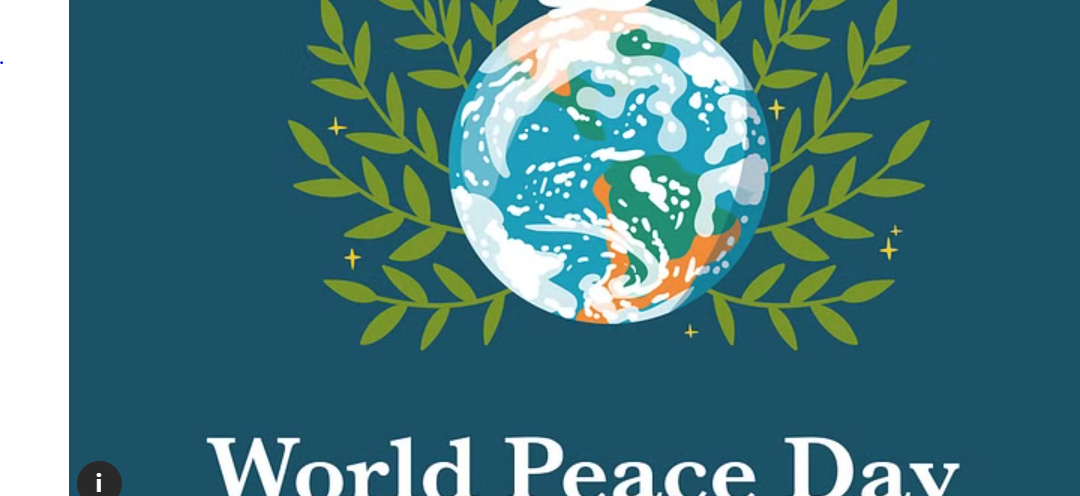
TODAY, as the global community commemorates the International Day of Peace, many parts of the world are far from being peaceful. Wars and internal armed conflict afflict many countries. Violent crimes, brutal dictatorship, and tension reign in others. Global warfare on the scale of the two world wars may be absent, or wide regional conflicts restrained, but the world is not at peace.
Instead, tension reigns across and within national borders and conflicts are taking their toll in deaths, injuries, dislocations, hunger and misery. World leaders need to find lasting solutions to the tension and unrest that have denied a significant percentage of the earth’s eight billion people lasting peace.
Observed since 1982 by UN member states, the IDP is “devoted to strengthening the ideals of peace, both within and among all nations and people.” Sadly, humanity’s efforts to build peace are constantly subverted. Though wars between the major world powers have been avoided, proxy wars fought through smaller nations abound among and within nations, by internal political, military and sectarian factions. Terrorism denies many countries of peace.
Increasingly, more lethal weapons are deployed. The peace promised by the founding of the UN in 1945 after the apocalyptic World War II has been elusive.
According to Wisevoter, worldwide, there are 32 ongoing conflicts, ranging from low-intensity wars, civil wars, terrorism, and drug cartel wars to gang violence. The Armed Conflict Location and Event Data Project’s chart reveals that a substantial portion of the globe is engulfed in some form of conflict.
In the Middle East, unrest and protests occur in Iran and Iraq. In Afghanistan, armed resistance to Taliban rule by other extremist groups persists. The Israeli-Palestinian conflict rages. In Asia, the Korean peninsula maintains an armed, tension-soaked peace as South Korea and North Korea stare warily at each other across their joint border.
From Eastern Europe, Russia’s aggression against Ukraine impacts the rest of the world. In Africa, Sudan and South Sudan, Mauritania, Burkina Faso, Niger, Mozambique, Congo DR, Mali, Nigeria, Somalia, and Kenya confront terrorist insurgency, banditry, and coup violence. Drug-related wars in South and Central America yield a harvest of death and humanitarian crises.
According to the International Campaign to Abolish Nuclear Weapons, nine countries currently possess nuclear weapons: Russia, the United States, China, France, the United Kingdom, Pakistan, India, Israel, and North Korea. “A single nuclear warhead could kill hundreds of thousands of people, with lasting and devastating humanitarian and environmental consequences,” it added.
Much of this unrest results from people forcing their ideologies on others, others from self-determination struggles, and some from discordant country politics.
At the root of the world’s brewing discord however lies the core of intolerance and injustice. American rights icon, the late Martin Luther King Jr., declared, “There can be no justice without peace. And there can be no peace without justice.”
World leaders should unanimously commit to the universal principles of fundamental rights, freedom, and justice. The resort to arms to resolve disputes should be discouraged.
The big powers, especially the five permanent members of the UN Security Council, should stop subverting peace and the international system by illegal unilateral actions and violations of UN resolutions and agreements.
Almost 78 years to the day after WW II and the founding of the UN as a peace facilitating mechanism, the world has so far avoided another world war, but just barely; leaders must do much more, put aside narrow interests, and commit themselves resolutely to ensuring peace within and across national boundaries.












